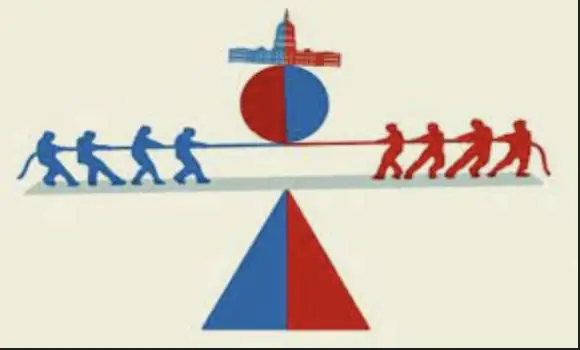Gridlock in American politics has become a growing problem over the last few decades. It is when Congress and the White House are unable to pass any meaningful legislation due to their extreme ideological differences.
This can have serious consequences, ranging from preventing important issues such as healthcare reform or climate change legislation from being addressed to raising public debt levels and even potentially shutting down the government entirely.
The main causes of gridlock are divided into two categories: political structure and partisanship. Political structure refers to how Congress is designed and organized; it’s heavily partisan, with each party holding different opinions on almost every issue.
As a result, no single bill can get the required support from both parties for it to be passed into law. Partisanship refers to the increased ideological differences between Democrats and Republicans, causing a lack of compromise or consensus.
The main effects of gridlock are an obstruction of important policy changes, rising public debt levels due to Congress being unable to pass budgets on time, and a general decrease in productivity from Congress as a whole.
Gridlock can also mean that potential risks posed by climate change, healthcare reform, and other serious issues remain ignored or unaddressed.
For gridlock to be eased or avoided altogether, individuals must understand the causes behind it and then work together for meaningful solutions. This includes recognizing when the political structure is inhibiting progress and finding ways to make sure both parties are heard and respected in decision-making processes.
Additionally, people need to be open to compromise, and for elected officials to work together in a bipartisan manner when possible. Finally, Congress should prioritize passing timely budgets—this will help to ease the burden of public debt that can arise from prolonged gridlock.
By understanding and addressing the causes of gridlock, Americans can ensure their government is productive and functional once again.
Despite its prevalence in American politics today, it doesn’t have to be this way. Working together with an aim towards compromise and mutual respect can help break through the gridlock and get things done.
Through civil dialogue, open-mindedness, and a focus on what’s best for all citizens, we can bridge differences between parties and make meaningful changes.


